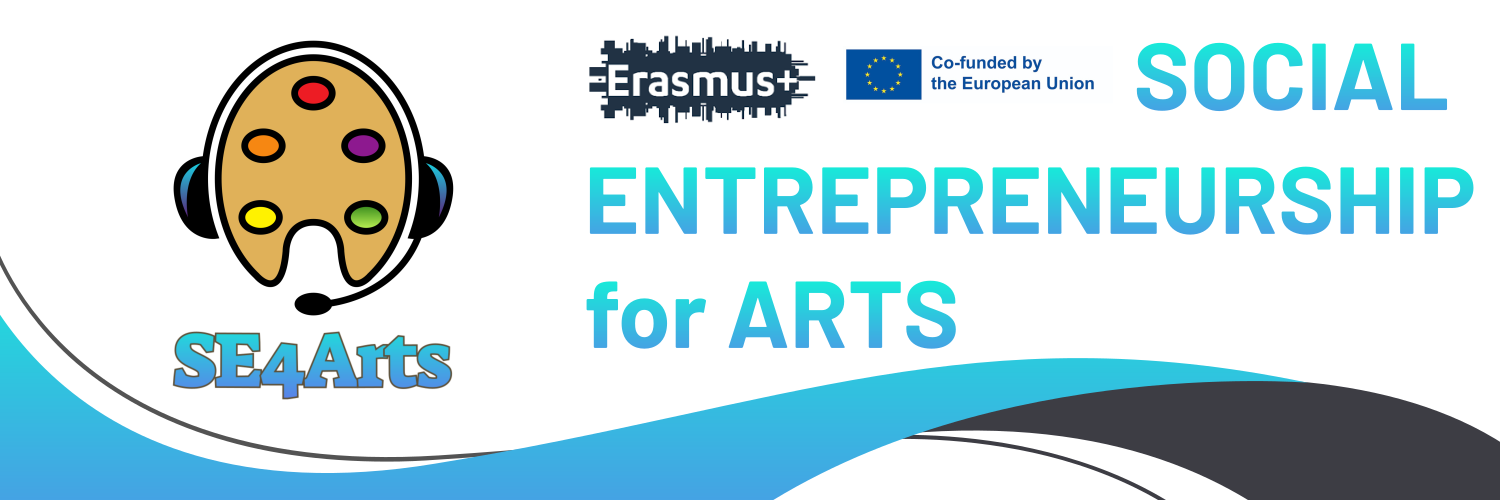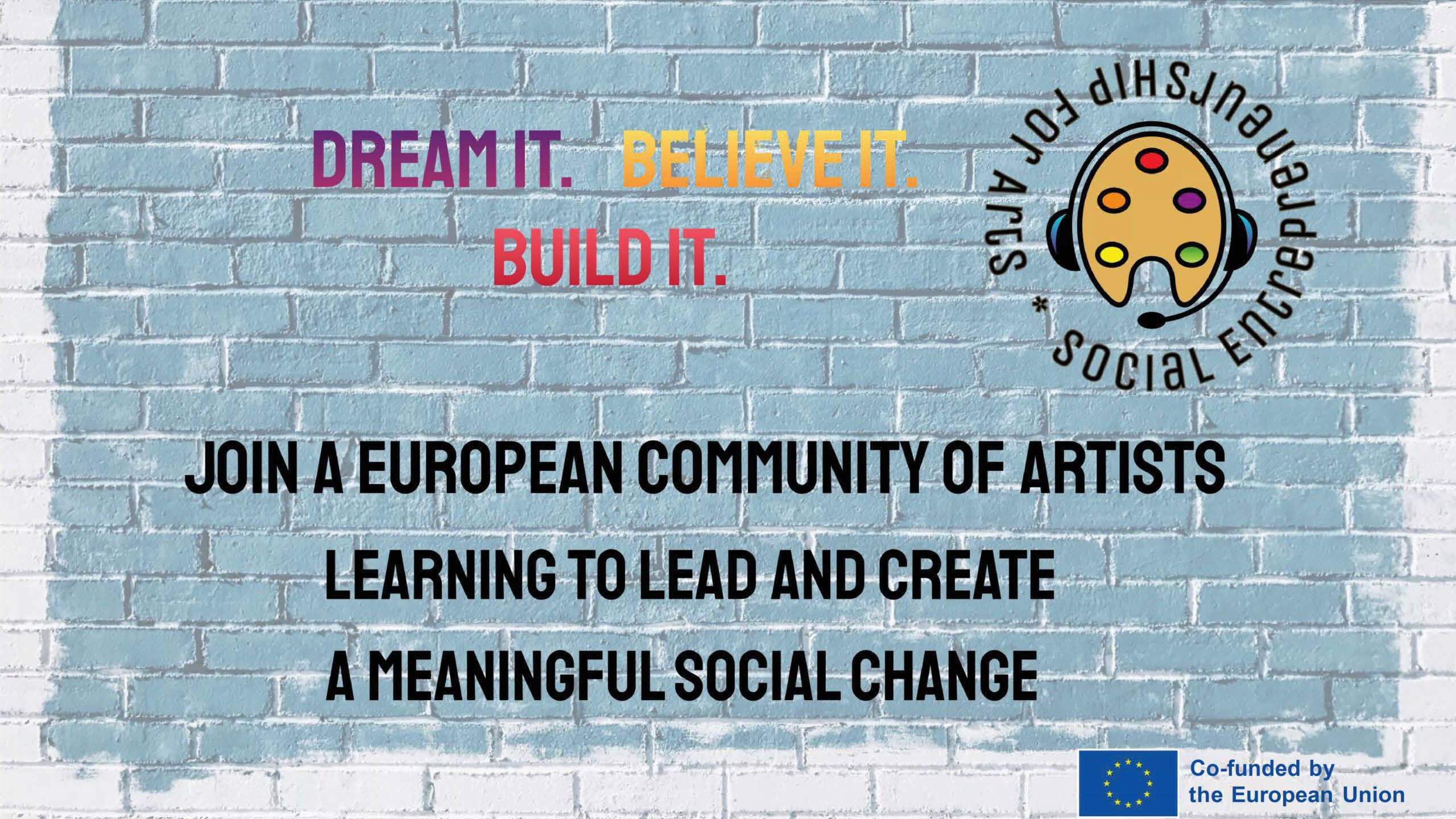Social Entrepreneurship for Arts (SE4Arts)
Free online course on developing entrepreneurial competences to young artists

The SE4A Project (Social Entrepreneurship 4 Arts)
Most of the times, young people employed in the creative sector do not have enough focus and attention on entrepreneurship skills which will eventually could help them promote their products as well as to have a contingency plan in case of a prevalent crisis.
Social Entrepreneurship 4 Arts promotes the notion that artists can be transformed to Creative entrepreneurs through the utilization of digital technology and tools. SE4Arts addresses the needs and barriers young artists face in accessing market opportunities and acquire them with the necessary entrepreneurial (soft and hard) skills to exhibit and market their work, manage finances and establish business collaborations.
The training programme

This Training Curriculum has been developed based on the results of the previous project output, the Protocol for the acquisition of skills and competences on entrepreneurship, identifying the social entrepreneurial training needs of young artists and senior students.
The present Curriculum was developed with the needs of the creative entrepreneur in mind. Although there are many entrepreneurship courses out there, our program has been uniquely tailored for the young European social entrepreneurs in arts and humanities. Our research in six European partner countries (Germany, Italy, Ireland, Greece, Cyprus, Bulgaria) showed that European social entrepreneurs don’t need indecipherable and impractical theory; they need advice and goals and they want to know how they can implement these points in their social enterprises.
Training Modules
Module 1 – Building a Skillset for your Social Enterprise
The module aims to equip learners with a set of both Hard and Soft Skills required for the startup of a Social Enterprise. Particularly it will provide them knowledge on how to manage and prioritize activities, meet deadlines, demonstrate communication business skills as well as to assess and their business needs.
Module 2 – How to market the social value and impact of your enterprise
This unit aims at supporting learners in gaining knowledge about the key principles, characteristics, and elements of social marketing and, the digital and social media marketing to promote the social purposes and core values of their business.
Module 3 – Creative, Social and Remunerative: how to stand out with your CSE and navigate the market successfully
The artists will be equipped with valuable skills in management and business creation of a creative social enterprise. They will learn how to start the process by developing a business model and a business plan to give the entrepreneur a guideline on where to start and what to consider keeping their business competitive in the market while at the same time mastering the social mission of the CSE.
Module 4 – Spicing Up Your Finances: Gain CSE Financial Management Skills and Spice Up Your Fundraising and Profit-Making Experience
The purpose of the unit is to address the unique issues and needs of financial management competencies for sustaining arts-based social enterprises as well as the financial literacy challenges of the young social entrepreneurs, helping them to assess past performance, identify risks to the financial position of the enterprise, and to find opportunities to improve performance and create social change.
Module 5 – Risk Assessments and Risk Management Skills Development for Creative Social Enterprises
Unit 5 aims to introduce the arts-based social enterprise`s risk management principles and standards towards the involvement of learners into an educational process that will enhance their decision-making skills in social entrepreneurship field.
Module 6 – Moving with ease in the financial and labour market
The unit aims at supporting learners in gaining knowledge about the key skillset that they must have developed to become competent professionals within the current or anticipated economic and Labour environments. It will also familiarize the participants with methods, and practical tools to develop capabilities, set priorities, goals, and objectives and design action plans around them.



